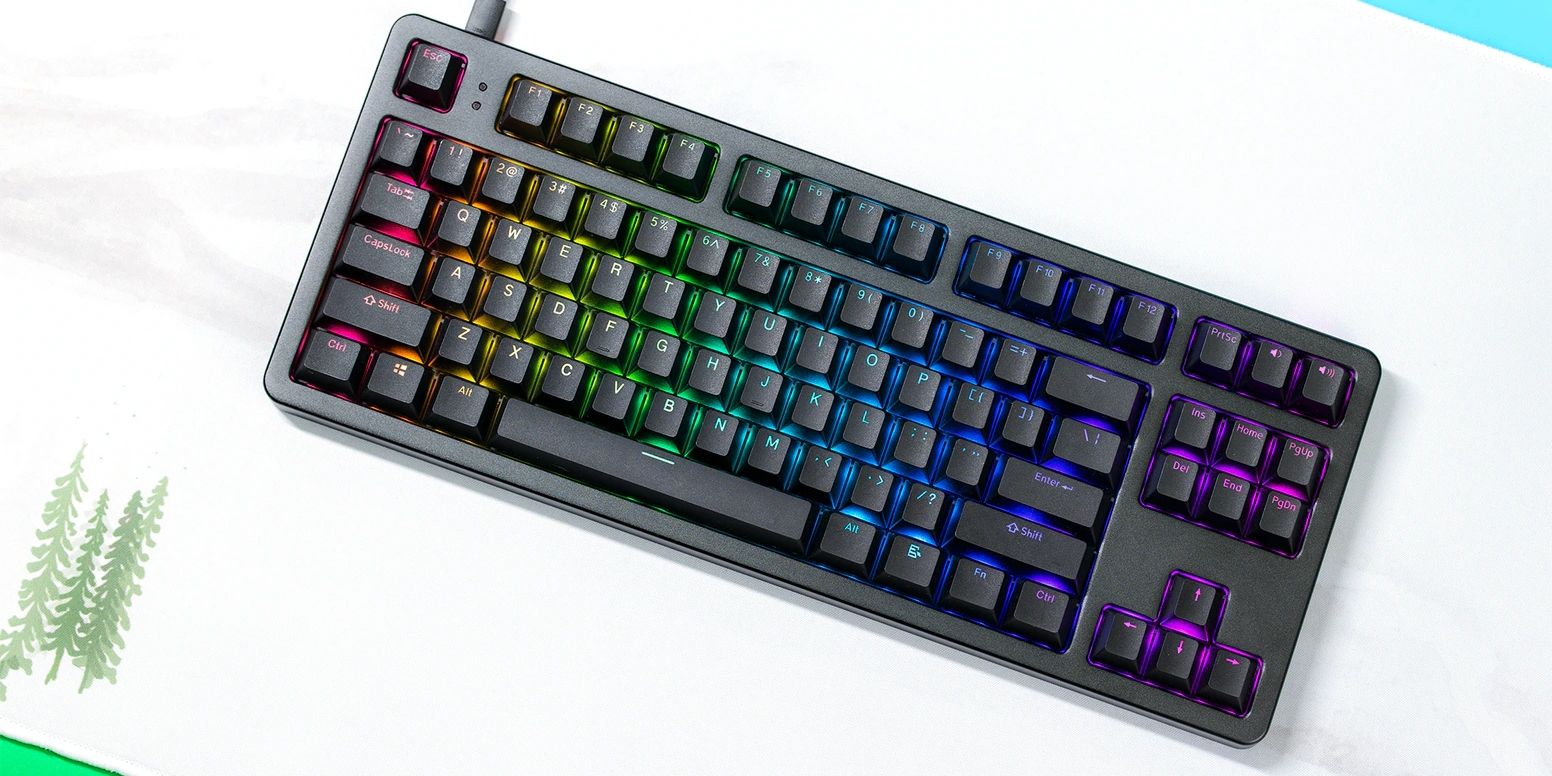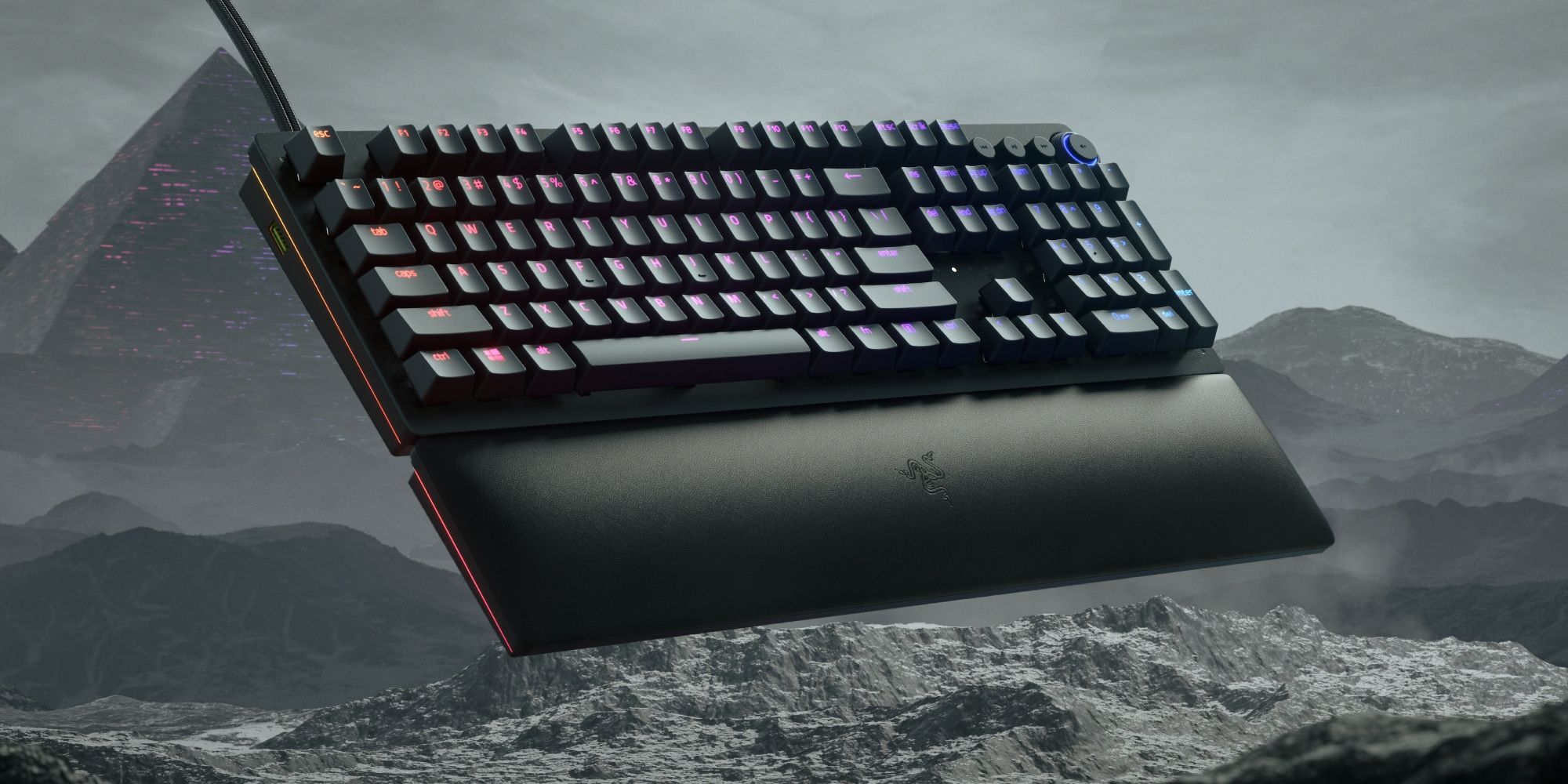Analog keyboards may just be the best gaming keyboards on the market today. Thanks to innovative depth-sensing technology, they offer a level of control that would previously have left gamers reaching for a controller. Not to mention, the number of options to chose from is only growing, with companies like Razer, Wooting, and Cooler Master releasing their own keyboards with full analog control.
For decades, keyboards have relied on digital control. Underneath each button lies a simple switch. Like a light switch, keyboard switches have historically registered being on or off without anything in between. For normal typing, this is completely fine, and in fact, preferable to prevent typos. For PC gaming, however, this design doesn’t offer the nuanced control many games demand for joysticks and trigger buttons.
Analog keyboards solve this problem by harnessing the power of light, as explained by Razer. Rather than relying solely on mechanical contacts, analog switches use infrared LEDs and advanced sensors to measure the intensity of light along the keypress, accurately determining just how far a key is being pressed. This allows the keyboard to mimic the smooth action of a controller’s joystick or trigger. For example, how a gentle press on a joystick might make a character walk while a heavy press makes them run. In driving games, holding down the “W” key could work like pressing the accelerator to the floor while easing it backs off the throttle around curves. This works in games because the keyboard sends these commands as if they’re actually controller inputs, while still allowing the rest of the keyboard to be used for chat and other commands, Literally, offering the best of both worlds.
The Future, But Analog Keyboards Still Face Challenges
Analog technology in keyboards isn’t exactly new, but the way it is being used today is. Japanese keyboard manufacturer Topre has used a version of analog sensing in its electrocapacitive keyboards for years, allowing users to set their own actuation point (how far the key needs to be pressed to trigger). The first company to apply this concept with optical switches for true analog control was Wooting with its Wooting One keyboard back in 2017. Cooler Master applied a similar tactic with its MK850 keyboard and Aimpad technology in 2019. Just last month, Razer unveiled its Huntsman V2 Analog optical gaming keyboard. The California-based enthusiast outfit, Input Club, is even planning its own AI-powered analog keyboard for the near future. Clearly, the technology isn’t going anywhere.
The fact is, some games just need analog control. Third-person games, and especially those where characters need to sneak, often allow players to creep or escalate into a full-blown run. With a normal keyboard, there are only two options: stand still or run. It's a similar situation with any driving game that benefits from analog control for steering or controlling speed. Adding a depth element to keys also allows manufacturers to add innovative options like Razer’s Dual-Step Actuation. This feature allows gamers to map two actions to a single keypress, such as equipping a grenade with a half-press and throwing it with a full. Gamers with analog keyboards have access to functionality and features normal gaming keyboards can’t compete with.
The technology, at least as applied to gaming, is still early on and there are kinks to work out. Not all games support hot-swapping between a controller and keyboard still, which forces gamers to choose one or the other, even on an analog keyboard. Just as importantly, current analog keyboards can sometimes feel too sensitive, due to a key switch’s shorter travel distance versus a joystick or trigger. Despite these challenges, the promise of gamepad-like control on keyboards is rich with potential and represents the next stage in the evolution of gaming with a keyboard.
Source: Razer, Wooting, Input Club/Kickstarter


